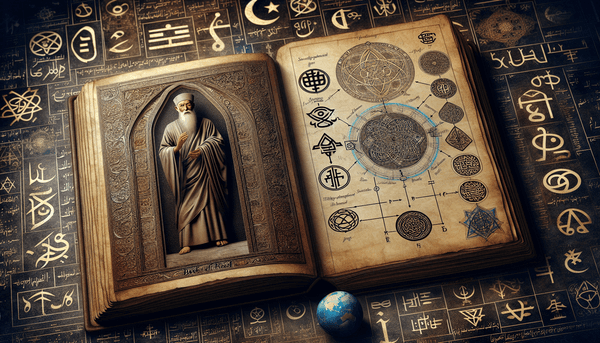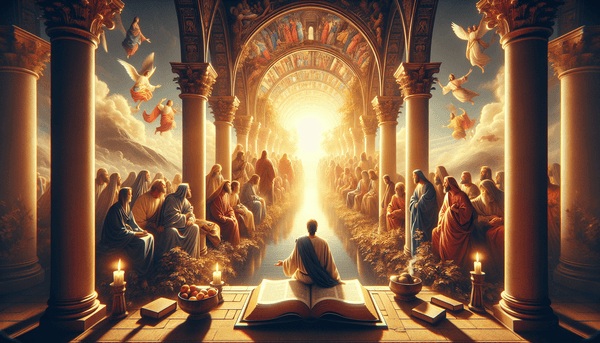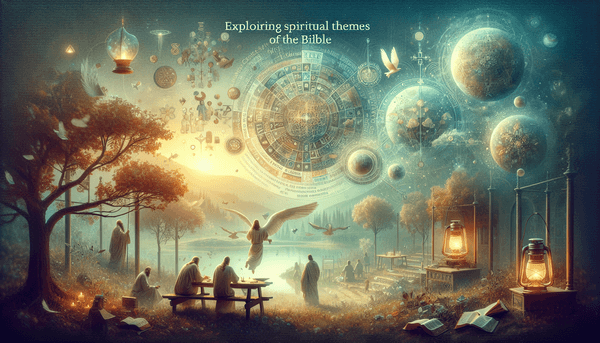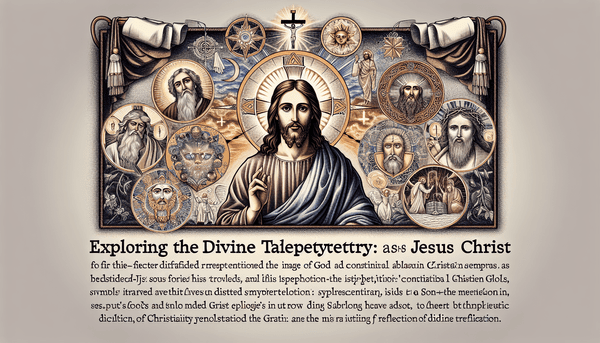The Historical and Religious Context of the Book of Enoch
The Book of Enoch, a collection of ancient Jewish writings attributed to Enoch, the great-grandson of Adam, stands as a significant yet controversial work outside the established biblical canon. Despite its exclusion from the official scriptures, the book's vivid descriptions of heavenly realms and apocalyptic visions have exerted considerable influence on early Jewish mysticism and Christian eschatology. Enoch's unique status, a man who 'walked faithfully with God' and was taken up to heaven, bypassing death (Genesis 5:24), is echoed in the New Testament, where his faith is commended (Hebrews 11:5). The Book of Enoch remains a compelling resource for those seeking to understand the breadth of Judeo-Christian thought and the complex history of religious literature.
God in Christianity and Islam: A Comparative Perspective
When exploring the nature of the divine across different religions, the term 'God' can signify a range of theological concepts. In Christianity, God is understood through the lens of the Trinity, a harmonious union of Father, Son, and Holy Spirit, with Jesus Christ embodying both human and divine natures (John 1:1-14). In contrast, Islamic tradition emphasizes the oneness of God (Tawhid), rejecting the Trinity and regarding Jesus as a revered prophet, not divine. The Arabic word 'Allah' is used by Muslims to refer to this singular deity, as well as by Arabic-speaking Christians and Jews in their respective contexts. These distinctions highlight the rich tapestry of monotheistic belief and underscore the importance of respectful interfaith dialogue.
The Legacy and Lessons of Enoch
Enoch stands as a paragon of righteousness in the Bible. His life, as briefly described in the Scriptures, was marked by an intimate walk with God, setting him apart from his contemporaries and ultimately leading to his extraordinary departure from the Earth (Genesis 5:24). This mysterious figure's faith and the teachings attributed to him inspire those seeking a closer relationship with the divine, much like the spiritual vigilance explored in our article on guarding our gates. Enoch's legacy is further commemorated in Jude 1:14-15, where his prophetic message is cited, and his example of piety is celebrated in the deuterocanonical writings (Sirach 44:16). The story of Enoch encourages believers to pursue a life of faith and integrity, exemplifying the transformative power of a righteous life.
Biblical Ethical Teachings and the Stewardship of Creation
Biblical scriptures often speak to the ethical treatment of God's creation, emphasizing stewardship and compassion. Proverbs 12:10, for instance, suggests that righteousness extends to how one cares for animals, a sentiment echoed in the broader call to stewardship in Genesis. This extends to all living creatures, including bees, whose role in the ecosystem is crucial, yet often endangered by human activities. The moral imperative to preserve and honor the natural world is seen in verses that remind us of the intrinsic value of creation, such as Psalm 24:1, which declares the Earth as belonging to the Lord. Christians are thus called to balance their dominion with a responsibility to protect and nurture the environment, living out the scriptural mandate to be caretakers of the world.
Conclusion
In conclusion, the journey through biblical texts, interfaith understanding, and ethical considerations has revealed a rich landscape of religious thought and practice. The Book of Enoch, though outside the canonical Bible, provides valuable historical and theological insights. The comparative study of the divine in Christianity and Islam underscores the need for respectful dialogue and a deeper appreciation of each tradition's uniqueness. The biblical figure of Enoch exemplifies a life of faith that transcends time and cultural boundaries, while the ethical teachings of the Bible call for a stewardship that honors the sanctity of all creation. These explorations invite readers to reflect on their beliefs and the implications of their faith in a complex and interconnected world.
FAQ
Q: What happened to the Book of Enoch?
A: The Book of Enoch is not included in the canonical Bible that is widely recognized by most Christian traditions. It is considered part of the apocryphal or pseudepigraphal writings, valued for historical and cultural reasons but not viewed as authoritative for faith and practice.
Q: Is Allah the same as the Christian God?
A: While Christians and Muslims both worship a monotheistic deity, there are significant differences in the understanding of God's nature. Christians believe in the Trinity, which is not present in Islam. Therefore, the term 'God' and 'Allah' refer to the divine in their respective faith traditions, but the theological understanding differs.
Q: Who was Enoch?
A: Enoch was a figure mentioned in the Book of Genesis in the Bible. He was the great-grandson of Adam and the father of Methuselah. Enoch is described as a man who 'walked faithfully with God' and was taken up by God, not experiencing death.
Q: Is Mary the mother of God?
A: Yes, according to the Bible, Mary is recognized as the mother of Jesus, who is both fully human and fully divine. This is affirmed in the Gospel of Luke, which describes the angel Gabriel's message to Mary about her son, Jesus.






